#herbal remedy
Text
Grocery Store Fire Cider

I try to always have fire cider on hand during the colder months. Fire cider is vinegar infused with warming, expectorant (mucus-clearing) herbs to help clear out gunk from our respiratory system. It's great for clearing up congestion and helping with wet coughs. Since pretty much everyone in my house tends towards wet cold symptoms (congestion/runny nose, coughing up mucus, etc.), we go through a lot of this stuff every cold and flu season.
I take a shot of fire cider as soon as I feel congestion or a wet cough coming on, or if I've been around someone I know is sick. While it doesn't always keep me from getting sick, I do think it helps speed up my recovery and keep my symptoms less severe.
A lot of fire cider recipes online and in herbalism books call for less common herbs that need to be purchased online or from a speciality herb shop. This year, I decided to make a batch with only herbs you can buy cheaply at most grocery stores. Here's the recipe for my fellow herbalists on a budget!
You will need:
A quart mason jar
1 whole head of fresh garlic, peeled and roughly chopped, OR 3 spoonfuls of pre-minced jarred garlic
3 knobs of fresh ginger about the size of your thumb, roughly chopped, OR 3 spoonfuls of store-bought ginger paste
1 package fresh thyme OR 2 tablespoons dried thyme
1 package fresh sage OR 2 tablespoons dried sage
1 quart apple cider vinegar
There are two methods I've used to make this cider. The traditional method is a slow infusion that takes 2+ weeks, but I've also developed a fast infusion method for when I feel a cold coming on and need a batch of fire cider ASAP.
Traditional Method:
Add your herbs to a clean mason jar. Pour the vinegar over the herbs and fill the jar to the top. Put a lid on the jar. (Vinegar will corrode metal lids, so either use a plastic lid or place a square of parchment paper between your jar and the metal lid.)
Place the jar in a cool, dark place and allow it to infuse for at least 2 weeks and up to 1 month. You can strain the herbs out to store at room temperature, or you can do what I do and store the whole thing in the fridge, herbs and all.
If you leave the herbs in, you can keep this batch of fire cider going all winter by topping the jar up with more vinegar every time it gets below halfway full.
Fast Infusion Method:
Add the herbs to the mason jar like you would for the traditional method. Instead of adding vinegar, fill the jar halfway with boiling water. Let sit for 2-3 hours.
Once the water has cooled down to room temperature, fill the jar the rest of the way with vinegar. Let it sit overnight and then either strain the herbs out or store the whole thing in the fridge.
To use the fire cider, take a shot glassful whenever you feel cold symptoms coming on. If you made your cider with the traditional method, you can dilute it with water if your stomach doesn't handle acid well. You can also mix in some honey to improve the taste.
Please note that fire cider and other folk remedies are not a replacement for medical care. I highly recommend staying up to date on your flu and COVID-19 vaccines in addition to using remedies like this.
#fire cider#herbal remedy#herbalism#traditional western herbalism#kitchen witch#kitchen witchery#kitchen witchcraft#green witch#green witchcraft#green witchery#budget herbalism#budget witchcraft#witchblr#mine#recipes
460 notes
·
View notes
Text
Looking for active witch blogs that post:
🕯 Altars
☠ Baneful Magic (curses, hexes, jinxes, etc.)
💸 Budget / Poverty / Struggle / DIY / Upcycling Witchcraft
📖 Magical Books (pics of grimoire pages, flip-throughs, book recs/reviews, etc.)
💲 Money, Business, & Prosperity Witchcraft
💀 Necromancy, Death Witchcraft, and/or Cthonic/Death Deities (also funerary stuff, medical examination, etc., love that stuff)
🌿 Practical & Responsible Herbalism (gardening, cultivating, harvesting, foraging, herbal remedies, recipes, salves, ointments, etc. but no anti-science, anti-medicine, anti-allopathy shit)
📝 Sigils (free to use, preferably)
👻 Spirit Work (esp. animal spirits, dryads, egregores, genus loci, gorgons, & mermaids)
🥄 Spoon-Conscious Witchcraft (for those who are disabled, exhaust easy, etc.)
✨ Things relating to: Santa Muerte, Artemis, Serket/Selqet
🦴 Vulture Culture (responsible)
Reblog or send me an ask if you think your blog might suit my taste.
Disclaimer: not Wiccan, not Pagan, not Heathen; just a witch who's curse-positive, eclectic, & agnostic.
#Witchcraft#Altars#Baneful Magic#Magical Books#Herbalism#Herbal Remedy#Spirit Work#Necromancy#Death Witchcraft#Death Witch#Cthonic Deity#Vulture Culture
198 notes
·
View notes
Text
Herbal Remedy for a Sore Throat 🍯
Since I was a child whenever I was sick my Mum would make me this drink to help with my sore throat. At first I had hated it and thought it was gross but then it grew on me! Since then I would always ask Mum for a honey and lemon "tea" whenever I was sick. It always helped soothe my throat and would help me feel better. ✨
To this day I still drink this when I am starting to feel sick, for a sore throat, or even just because I want a soothing drink!
This drink is perfect for a simple kitchen witch recipe! 🌸
Ingredients and Properties 🔮
Lemon: purification, uplifting, rejuvenation, cleansing, and protection.
Honey: joy, happiness, and healing.
Ginger: healing, and spiritual protection.
Method 🌸
Juice half a lemon and make two slices with the other half to insert to cup.
Peel ginger and slice 2-3 pieces.
Add honey and lemon juice to cup.
Fill cup up with hot water with space for cold water.
While stirring set healing and soothing intentions into drink.
Add ginger slices*.
*Don't forget to remove the slices after max 5 minutes to not overpower the drink.
#kitchen witch#kitchen witchcraft#witchy recipes#herbal remedy#cold remedy#sore throat remedy#cottage witch#witch community#witchblr#my post
24 notes
·
View notes
Text
I have seen WAY too many posts about “herbal remedies to provide abortion” going around with the recent news
And as a historian focusing on medical history I’m thrilled to see people looking to the past to see what people with uteruses used to bring on menstruation (induce abortion) because the history of reproductive healthcare and of abortion in particular is extremely important in understanding our current circumstances and the circumstances Americans were in before Roe
But I also really really need y’all to listen to me both as a historian and as someone who’s been making and using herbal remedies my whole life:
A lot of these “remedies” will kill you.
This isn’t an exaggeration, this isn’t a scare tactic designed to make you lose hope on reproductive healthcare. A lot of herbal remedies can and will kill you- especially if you don’t speak to actual herbalists, licensed homeopaths, and actual physicians who know your medical history before using an herbal remedy. Even helpful herbs can be very very dangerous in doses large enough to induce an abortion - I’m taking completely shutting down your liver and killing your kidneys dangerous.
I also want it pointed out that a LOT of online homeopathic groups are full of misinformation- the kind that leads people to accidentally dose themselves with arsenic by consuming fruit pits as well as incredibly ableist anti-modern science and anti-vax arguments. A lot of people in online homeopathic spaces are ableist white supremacists who hide behind a veneer of “new age spirituality” rather than conservative evangelical Christianity.
You have to be extremely careful about where you’re getting your information from and how you’re using that information.
I’m currently working on putting together a master list of licensed homeopaths who have resources available in the wake of the leaked Supreme Court decision and will share that when it’s finished. Just please folks- stay safe.
675 notes
·
View notes
Text
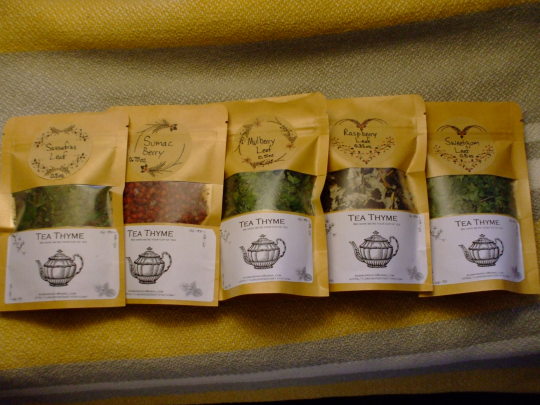

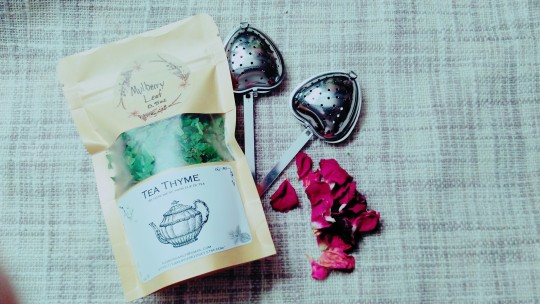
Many of you asked for herbal teas... (some time ago!) we finally got around to it! We have three available so far, but we are drying and collecting more and will start making custom blends soon! Enjoy!
http://lakesideseedset.etsy.com
#tea#herbal#herbal tea#herbal teas#plants#wildflowers#herbal remedies#herbal remedy#herbal medicine#teas#organic#organic medicine#wildflower tea#natural medicine#alternative medicine
12 notes
·
View notes
Text
How to Make Herbal Pills
Herbal pills are easy to make and a great way to use your medicinal herbs. They're perfect for making your own blends to suit your needs, and all you really need are finely powdered herbs and honey. You can also add carob, cocoa powder, licorice, cinnamon, or anything you'd like to make them tasty as well as effective!
Recipe from Herbal Academy
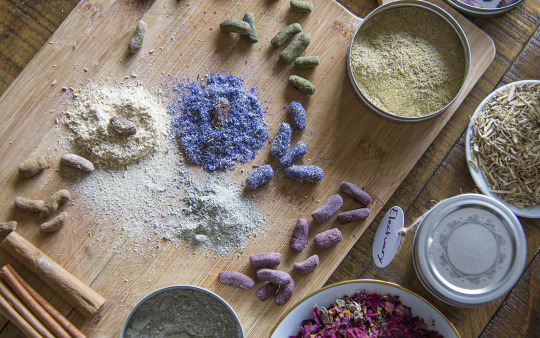
Place your powdered herbs in a bowl and mix with honey to make a stiff dough.
Break off small bits of your dough and roll into balls. Optional: Roll the pills in the powdered herbs, carob, cinnamon, or cocoa powder to give them a finished look and extra flavor.
Place your pills in the fridge for a while to harden them up.
Store in glass jars in the fridge. Refrigerated pills will last about 3 months, but powdered herbs lose effectiveness over time.
Recipe from Rosemary Gladstar's Medicinal Herbs: A Beginner's Guide
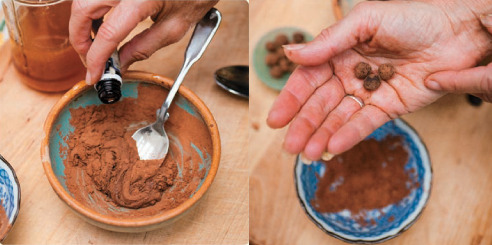
Place your powdered herbs in a bowl and mix with water and honey or maple syrup to make a sticky paste.
Add carob, unsweetened cocoa powder, licorice powder, or whatever you're using until a thick, smooth paste forms.
Knead your mixture until it's smooth like bread dough.
Break off small bits of your dough and roll into balls. Optional: Roll the pills in the powdered herbs, carob, cinnamon, or cocoa powder to give them a finished look and extra flavor.
Dry the pills. You can use a dehydrator, place them on cookie sheet and dry in a low oven (150°F or so), or if the weather is warm and dry you can dry them in the sun.
Store them in glass jars in a cool, dark spot or in the fridge. Dried pills will last indefinitely, but powdered herbs lose effectiveness over time.
Herbal pills are typically chewed or sucked on until they break apart and can be swallowed. You can swallow herbal pills whole, but they can be a choking hazard especially if you roll them bigger! You can also dissolve your pills in hot water/herbal tea and consume them as a drink.
Sources: Herbal Academy, Gladstar, R. (2012). Rosemary Gladstar's Medicinal Herbs: A Beginner's Guide. Storey Publishing. pp. 34-35
#herbalism#medicinal herbs#herbal pills#herbal remedy#medicinal plants#herbal recipe#cottagecore#solarpunk#herbalist#herbs
188 notes
·
View notes
Text
If you scroll down a bit, you'll see a post I did about Mullein.
If you don't remember, mullein is a flowering plant that is excellent for supporting lung health as it is an expectorant which helps the body expel excess mucus. It is commonly brewed as a tea and has traditionally been used to ease conditions like bronchitis thanks to also being a demulcent. That means mullein has anti inflammatory properties that create a soothing coating over mucous membranes.
Ok, that's great but where do I get it and how do I actually use it?
Besides finding a pre-made boxed tea or loose tea leaves this is a great follow up to that post that beautifully demonstrates a practical way to use Mullein at home.
Let me know if you try this and how it goes!
#food#organic herbs#healing herbs#herbal remedy#medicinal herbs#healthy#vegan#foodie#health#fitness#diet#nutrition#plant based#plants#fitblr#veganism#plant based diet#raw#healthy food#organic#herbology#herbalism#natural herbs#for the love of nutrition#fit#tincture#elixir#plant medicine#plantstrong#plants and herbs
120 notes
·
View notes
Text




Constellations II.
12x12"
Acrylic on canvas
#art#milwaukee#painting#fleming#fine art#figure#acrylic#symbol#symbolism#figurative#constellations#stars#meaning#botanical#flower#plant life#herbal remedy#natural healing#wisconsin flowers#nature
4 notes
·
View notes
Note
hello balkanradfem! I love your blog and your advice and wanted to ask if you know anything that helps with hormonal acne? I want to stop taking the pill (years ago doctors told me to take it against acne) because it doesn't really help that much and has a ton of side effects (plus I dont need it for contraception). I am currently drinking fenugreek tea but it's not helping yet and I am anxious to go off the pill.
Oh I wish I knew! But I've never struggled with this, so I wouldn't be able to offer any advice. Does anyone else know of a natural remedy for this?
9 notes
·
View notes
Note
Would you be willing to share your tea recipe? I live with anti-masker/vaxxers and haven't been able to get my booster shot so I'm scared to catch covid and would love to know how I could help myself if I needed
Hi! Sorry for taking so long to respond, it took a while for me to find my original research for this.
Since respiratory symptoms are the most dangerous with covid, I made a special recipe that focuses on that:
Equal parts thyme, marshmallow root, and licorice root, totaling 2 grams per 12 ounces of water, between 175 and 190 degrees. Steep for 3 to 5 minutes. You will need to strain this tea.
This tea does not taste very good but will taste better if a liberal amount of honey is added (1/2 to 1 teaspoon is recommended). Honey also boosts the immune system and has both antibacterial and antiviral properties, so I highly recommend adding some.
For other symptoms:
Fever: Elderflowers, catnip, yarrow, and peppermint.
Note: fever is your body's way of cooking diseases out of existence. Do not give tea for fever unless the fever is above 102 degrees F.
Sore throat: (add honey and lemon to this tea) Ginger, licorice root, and green tea.
For Your Sinuses: (add lemon to this tea) Ginger and peppermint
Alleviate Nausea/Improve Digestion: Ginger, chamomile, and peppermint or spearmint.
Reduce Body Pains/Headache: Peppermint, ginger, feverfew, chamomile, and turmeric.
Immune system boost: (add honey to this tea) chamomile, ginger, green tea, and white tea.
Note: Honey and white tea both murder sickness not only because of their immune-system boosting but also because of antimicrobial properties and many other things that I could spend pages listing and explaining. I recommend that a daily tea for everyone without difficulty breathing be silver needle with honey.
Crossed off = do not give to anyone having difficulty breathing
WARNINGS:
Licorice root: No more than 1 cup per day. Licorice root should not be drunk if pregnant, or if you have hypertension, a liver disorder, severe kidney insufficiency, low blood potassium, heart disease with edema, or congestive heart failure.
Marshmallow root: Do not take for more than 4 weeks at a time. Can interact with lithium and diabetes drugs, and possibly interfere with the absorption of others, always check if you can have it with your medication. Do not have it if you are pregnant or breastfeeding, have diabetes, or have surgery in the next 2 weeks.
Elderflower: May lower blood sugar, so be careful if you have diabetes and don't use it if you have an upcoming surgery.
Catnip: There is not a specific known amount, but if you drink too many cups you may feel ill. Possibly unsafe for children. Do not drink if pregnant or breastfeeding, if you have PID, if you have menorrhagia, or if you will have surgery within 2 weeks.
Yarrow: Do not drink if pregnant or breastfeeding, if you have a bleeding disorder, an allergy to ragweed and related plants, or if you're within 2 weeks of surgery. Do not drink if you're on lithium, any medication that slows blood clotting, or sedatives, and you may want to be cautious if you're on antacids.
Thyme: Do not drink if you have a bleeding disorder, hormone-sensitive condition, or if you are having surgery within 2 weeks. Also, avoid if taking drying medications, estrogen, AChE inhibitors, medications that slow blood clotting, and cholinergic drugs.
Turmeric: Do not drink if you have gallbladder problems, a bleeding disorder, a hormone-sensitive condition, liver disease, or if you will have surgery in the next 2 weeks.
Peppermint: Should not be drunk if you have GERD or kidney stones. Do not drink if you are on cyclosporine, or any drugs metabolized in the liver, meant to reduce stomach acid, for diabetes, or for blood pressure issues.
Feverfew: Do not drink if you're allergic to ragweed and related plants, or if you are pregnant.
Ginger: Avoid if you have a bleeding disorder or will have surgery in the next 2 weeks.
Chamomile: Do not drink if allergic to ragweed and related plants, or if taking cyclosporine or warfarin.
Also please note that this is not professional medical advice but rather a remedy from an amateur herbologist and tea witch. If possible, call your doctor for an antiviral if you get covid, or go to urgent care or the ER if needed.
Other tips to care for yourself if you get covid are to drink lots of fluids, rest, and do breathing exercises for respiratory health.
Stay safe anon <3
#covid#coronavirus#the tea also helps with cold and flu symptoms though#tea#herbal remedy#tea witchcraft#hope this helps!#ask#anon
32 notes
·
View notes
Text
Rosemary Gladstar’s Fire Cider Recipe
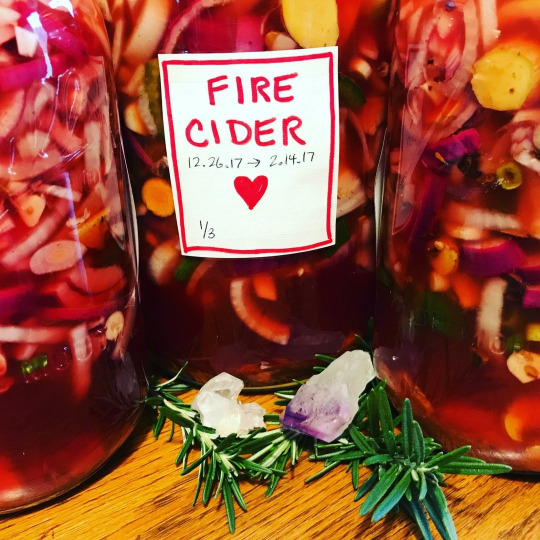
½ cup grated fresh horseradish root
½ cup or more fresh chopped onions
¼ cup or more chopped garlic
¼ cup or more grated ginger
Chopped fresh or dried cayenne pepper ‘to taste’. Can be whole or powdered. ‘ To Taste’ means should be hot, but not so hot you can’t tolerate it. Better to make it a little milder than to hot; you can always add more pepper later if necessary.
Optional ingredients; Turmeric, Echinacea, cinnamon, etc.
Place herbs in a half-gallon canning jar and cover with enough raw unpasteurized apple cider vinegar to cover the herbs by at least three to four inches. Cover tightly with a tight fitting lid.
Place jar in a warm place and let for three to four weeks. Best to shake every day to help in the maceration process.
After three to four weeks, strain out the herbs, and reserve the liquid.
Add honey ‘to taste’. Warm the honey first so it mixes in well. “To Taste’ means your Fire Cider should taste hot, spicy, and sweet. “A little bit of honey helps the medicine go down……”
Rebottle and enjoy! Fire Cider will keep for several months unrefrigerated if stored in a cool pantry. But it’s better to store in the refrigerator if you’ve room.
A small shot glass daily serves as an excellent tonic Or take teaspoons if you feel a cold coming on.
Take it more frequently if necessary to help your immune system do battle.
31 notes
·
View notes
Text
Tried a new restaurant yesterday and got burned. 🫠 But at least I can show y'all what I do for flareups. Part of why I like having tinctures on hand is because it makes it easier to grab something when I feel bad.
I hope this helps y'all next time you have tummy troubles!
#celiac disease#celiac#chronic illness#autoimmune disorder#invisible illness#invisible disability#gastrointestinal disorders#gut healing#herbalism#herbal remedy#herbal medicine#tincture#ibs#irritable bowel syndrome#sick day#tiktok#mine
132 notes
·
View notes
Text
Lavender Essential Oil for Muscle Pain, Tension and Headaches
A few days ago I woke up with pain in my neck and right shoulder. Evidently, I slept in a weird position. I’m one who avoids Acetominophen and Ibuprofin and only take it when the pain is bad enough to affect my day. I was getting ready to reach for Tylenol on this day, but then I remembered Lavender and how I was using it a while back for muscle pain and how it worked almost instantaneously.
So…

View On WordPress
#aromatherapy#essential oil#headache#headaches#herb#herbal remedy#home remedy#lavandula#Lavender#lavender essential oil#lavender for muscle pain#lavender for pain#lavender rub#medicinal#medicinal herb#pain#pain relief#remedy for muscle pain#remedy for muscle tension#remedy for tension#tension#tension relief
0 notes
Text
Weight to volume tincture fully worked
Here's a fully worked example of calculating alcohol dilution for a tincture of fresh herb (in this case, Brahmi).
Some folks can find the maths in tincturing a little daunting but once you get used to it, it’s easy.
I’ve prepared this fully worked example of making a ratio tincture (aka weight to volume tincture) of fresh Brahmi (Bacopa monnieri) from our garden.
I harvested 200g of fresh Brahmi. We know that the best ratio for fresh herbs is 1 part herb : 2 parts alcohol, so we will need 400ml of alcohol.…

View On WordPress
#abv#alcohol#brahmi#fresh herb water content#herbal remedy#ratio method#tincturing#weight to volume#worked example
1 note
·
View note
Text
Diaboulard: A Herbal and Probiotic Solution for Controlling Diarrhea and Enteritis in Swine

Diarrhea and enteritis pose significant challenges in swine production, impacting animal health, welfare, and farm profitability. Brachyspira diarrhea and piglet diarrhea are particularly prevalent and can lead to severe economic losses. In response to these concerns, Diaboulard emerges as a promising herbal and probiotic remedy designed to effectively control diarrhea and enteritis in swine. This article explores the mechanisms of action, efficacy, and practical applications of Diaboulard in swine management.
Understanding Diarrhea and Enteritis in Swine:
Diarrhea and enteritis in swine are multifactorial conditions often associated with bacterial infections, dietary factors, stress, and environmental conditions. Brachyspira diarrhea, caused by Brachyspira hyodysenteriae, and piglet diarrhea, commonly attributed to pathogens like Escherichia coli and Clostridium perfringens, are among the leading causes of morbidity and mortality in swine herds. These conditions not only compromise pig health but also lead to reduced growth rates, increased medication costs, and decreased overall productivity.
The Role of Diaboulard:
Diaboulard offers a holistic approach to combating diarrhea and enteritis in swine. Its unique formulation combines herbal extracts with probiotic strains, synergistically targeting the underlying causes of gastrointestinal distress while promoting digestive health and resilience. The herbal components of Diaboulard possess anti-inflammatory, antimicrobial, and mucosal protective properties, helping to alleviate intestinal inflammation, combat pathogenic bacteria, and enhance gut barrier function. Concurrently, the probiotic strains in Diaboulard support microbial balance, strengthen immune defenses, and improve nutrient absorption, contributing to overall gut health and performance.
Efficacy and Benefits:
Numerous studies have demonstrated the efficacy of Diaboulard in controlling diarrhea and enteritis in swine. By preventing Brachyspira diarrhea and piglet diarrhea, Diaboulard helps to reduce morbidity and mortality rates, improve growth performance, and optimize feed efficiency in affected herds. Moreover, its natural and probiotic-based composition offers a sustainable alternative to antibiotic treatments, reducing the risk of antimicrobial resistance and supporting responsible antimicrobial use in swine production. Diaboulard's ease of administration further enhances its practicality, allowing for seamless integration into existing herd management protocols.
Practical Applications:
Diaboulard can be administered prophylactically to prevent diarrhea outbreaks or therapeutically during disease episodes in swine. It can be easily incorporated into feed or water systems, facilitating convenient delivery to pigs of all ages. Additionally, Diaboulard complements biosecurity measures and good management practices, contributing to a comprehensive approach to disease prevention and control in swine operations.
Conclusion:
In conclusion, Diaboulard emerges as a valuable herbal and probiotic solution for controlling diarrhea and enteritis in swine. Its efficacy in preventing Brachyspira diarrhea and piglet diarrhea, coupled with its natural composition and ease of administration, positions Diaboulard as a promising tool for promoting gut health, enhancing productivity, and ensuring the well-being of swine herds. Incorporating Diaboulard into swine management practices represents a proactive approach to addressing gastrointestinal challenges while upholding sustainability and animal welfare in the swine industry.
#Diaboulard#Diarrhea control#Pig health#Piglet diarrhea#Enteritis remedy#Herbal remedy#Probiotics for swine#Livestock health#Veterinary medicine
0 notes
Text

ICYMI: We have herbal teas now! (Click image for our Etsy shop)
#tea#teas#herbal tea#herbal#herbals#wildflower#herbal remedy#herbal remedies#wildflowers#natural medicine#natural#organic
4 notes
·
View notes